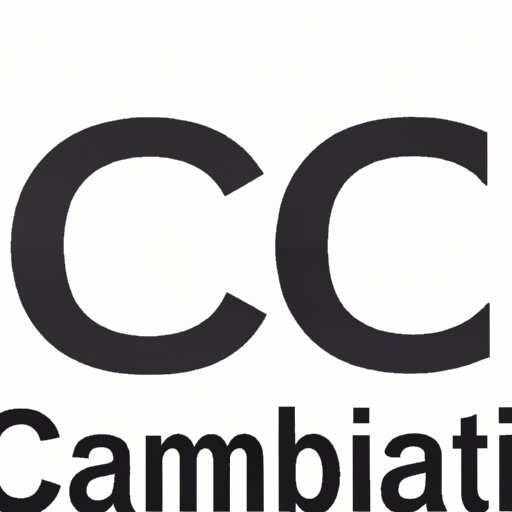Introduction
Creative Commons (CC) licenses provide an alternative to traditional copyright law, allowing creators to share their work with others while still retaining some control over how it is used. By understanding what Creative Commons licensing is and how to use it, you can ensure that your content is properly protected and shared with the world.
What is the Benefit of Creative Commons Licensing?
Creative Commons licenses offer a number of benefits for both creators and users of content. These include increased exposure and accessibility, legal protection, and cost savings.
Increased Exposure and Accessibility
Creative Commons licenses allow creators to make their work available to a wider audience by giving users permission to share, remix, or build upon their work without the need for additional permission or payment. This can lead to increased exposure and accessibility, as well as more opportunities for collaboration and innovation.
Legal Protection
By using a Creative Commons license, creators can specify exactly how their work can be used, providing legal protection against any unauthorized use or misuse of their content.
Cost Savings
Using a Creative Commons license can also help creators save money, as they no longer have to pay for expensive copyright registration fees or costly legal advice when protecting their work.

How to Choose the Right Creative Commons License
There are a variety of Creative Commons licenses available, so it’s important to understand the different types and decide which one best meets your needs. Here are some tips for choosing the right Creative Commons license for your content.
Understanding the Different Types of Creative Commons Licenses
Creative Commons licenses come in six different flavors: Attribution (CC BY), Attribution-ShareAlike (CC BY-SA), Attribution-NoDerivs (CC BY-ND), Attribution-NonCommercial (CC BY-NC), Attribution-NonCommercial-ShareAlike (CC BY-NC-SA), and Attribution-NonCommercial-NoDerivs (CC BY-NC-ND). Each type of license has its own set of restrictions and requirements, so it’s important to read the fine print and understand what each one entails before making a decision.
Exploring the Pros and Cons of Creative Commons Licensing
It’s also important to consider the pros and cons of Creative Commons licensing. On the one hand, Creative Commons licenses offer creators the ability to control how their work is used, while still allowing others to benefit from it. On the other hand, it can be difficult to enforce Creative Commons licenses, as users may not always be aware of the restrictions. Additionally, some Creative Commons licenses may not provide enough protection if a user decides to misuse the content.

A Guide to Using Creative Commons Licensing for Your Content
Once you’ve decided to use Creative Commons licensing for your content, there are a few steps you should take to ensure that you’re using it correctly. Here’s a guide to using Creative Commons licensing for your content.
Identifying the Type of Content You Want to License
The first step is to identify the type of content you want to license. Different types of content require different types of Creative Commons licenses, so it’s important to know what type of content you’re dealing with before deciding on the appropriate license.
Researching Different Creative Commons Licenses
Once you’ve identified the type of content you want to license, it’s time to research the different Creative Commons licenses available. Make sure to read the fine print and understand the restrictions and requirements of each license before making a decision.
Applying the Appropriate License to Your Work
Once you’ve chosen the right Creative Commons license for your content, you’ll need to apply it to your work. This can be done manually, or you can use a tool such as Creative Commons’ “Choose a License” wizard to help you through the process.
Creative Commons Licensing in Practice: Examples and Case Studies
To gain a better understanding of how Creative Commons licensing works in practice, let’s look at some examples and case studies. We’ll explore how Creative Commons licensing is used for images, music, and video.
Creative Commons Licensing for Images
When it comes to images, there are a number of Creative Commons licenses available, ranging from the most restrictive (Attribution-NonCommercial-NoDerivs) to the least restrictive (Attribution). For example, the popular photo sharing site Flickr allows users to upload photos under a variety of Creative Commons licenses, so that other users can find and use them without fear of copyright infringement.
Creative Commons Licensing for Music
Creative Commons licensing can also be used for music. Many musicians choose to release their music under Creative Commons licenses, allowing others to use their work for free as long as they provide proper attribution. For example, the popular music streaming service SoundCloud allows users to upload their music under a variety of Creative Commons licenses, so that other users can find and use it without worrying about copyright infringement.
Creative Commons Licensing for Video
Creative Commons licensing is also becoming increasingly popular for video. For example, YouTube allows users to upload videos under a variety of Creative Commons licenses, so that others can find and use them without fear of copyright infringement. Additionally, many video creators use Creative Commons licenses to control how their work is used, while still allowing others to benefit from it.
Conclusion
Creative Commons licensing is an increasingly popular way for creators to share their work with the world while still retaining some control over how it is used. By understanding what Creative Commons licensing is and how to use it, you can ensure that your content is properly protected and shared with the world.
(Note: Is this article not meeting your expectations? Do you have knowledge or insights to share? Unlock new opportunities and expand your reach by joining our authors team. Click Registration to join us and share your expertise with our readers.)
